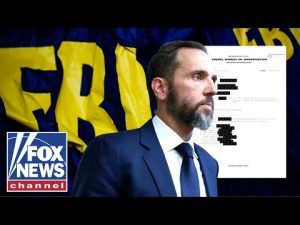On October 28, 2025, the Republican-led House Oversight Committee publicly released a 93-page staff report bluntly titled “The Biden Autopen Presidency,” laying out testimony and documents that raise grave questions about who was actually exercising presidential power in the final years of the Biden administration. The report alleges widespread use of an autopen to execute executive actions and pardons, and it calls on the Department of Justice to review and potentially void those actions that cannot be traced to President Biden’s own authorization.
Committee interviews and depositions, the report says, paint a portrait of a White House that tightly scripted and shielded the president while staffers did not always know who authorized the autopen or who actually applied the signature. Republicans on the panel argue that when the chain of custody for consequential actions like pardons is murky, the actions themselves become constitutionally suspect—and they have formally urged Attorney General Pam Bondi to probe these potential irregularities.
The report also documents that several former aides invoked the Fifth Amendment when pressed under oath, and committee investigators emphasize the lack of contemporaneous records proving President Biden personally approved many of the contested actions. That combination—evasions, missing notes, and testimony admitting uncertainty about who controlled the autopen—reads like a cover-up, not ordinary White House bookkeeping.
Let’s be clear: the autopen itself is not a novelty. Legal opinions and historical practice show presidents have used devices to reproduce signatures for routine business for decades, and fact-checkers have noted the legal argument that autopen use does not automatically render a pardon void. But the difference now is context—the committee argues this was not mere convenience but a mechanism used amid an alleged effort to hide a president’s declining faculties while still making world-shaping decisions. The law and the Constitution deserve more than convenient legalism when the tools of statecraft are allegedly wielded in secrecy.
Democrats and the White House have predictably dismissed the investigation as partisan theatre, insisting Biden signed and approved all decisions and accusing Republicans of fixating on his health instead of real problems facing Americans. That defensive posture only makes the cover-up narrative more plausible to skeptical voters: when you shout “political” and refuse to produce documents or fully answer questions, people naturally wonder what you’re hiding.
Conservative Americans should not be satisfied with mere headlines or partisan back-and-forth; this is a constitutional question about the legitimacy of executive acts and who holds power behind the throne. If the Oversight Committee’s findings are even partially true, we are staring at a crisis that goes beyond politics—this is about the rule of law, accountability, and preserving a presidency that answers to the people, not to anonymous aides.
The Department of Justice has an obligation to follow the facts wherever they lead, and patriotic citizens must demand full transparency, immediate forensic reviews of disputed signatures and records, and consequences for any officials who used the machinery of the state to conceal the truth. If Republicans are right, those pardons and executive actions were not just sloppy—they were illegitimate—and the American people deserve the final word, not a quiet shrug from a complicit bureaucracy.
In the weeks ahead, voters should watch whether the justice system and mainstream media finally hold the powerful to account or continue to look the other way. We owe it to future generations to insist on a presidency that is honest, competent, and accountable; anything less is a betrayal of the Constitution and of every hardworking American who believes in fair play and the rule of law.







